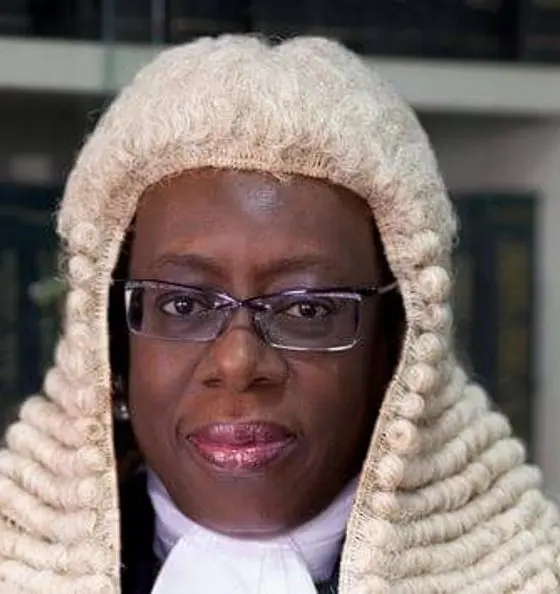
CJN clarifies why NJC publishes names of judicial candidates
Justice Kudirat Kekere-Ekun, Chief Justice of Nigeria (CJN) has explained why the National Judicial Council (NJC) under her leadership made it mandatory to publish the names of those seeking to be appointed as judges.
According to her, the policy is an intentional effort to reinforce accountability, enhance public trust, and align the appointment procedures with international best practices as enunciated in the Constitution Hill Guidelines.
She explained that the strategy was to introduce an additional layer of transparency into the process of appointing judges by ensuring that members of the public and other relevant stakeholders could raise objections, provide information, or endorse nominees before appointments are finalised.
Justice Kekere-Ekun disclosed this while presenting a paper titled “Innovations in judicial practice: Embracing change for a better future” at the Commonwealth Magistrates and Judges’ Association Triennial Conference held in Banjul, The Gambia.
The Constitution Hill Global Guidelines on Apex Court Appointments, published in September 2024, provided a global set of baseline principles tailored to the singular role of apex courts as final arbiters of constitutional interpretation and guardians of democratic governance.
In a statement that was signed by her media aide, Mr Tobi Soniyi, the CJN revealed that the initiative already yielded positive outcomes as members of the public forwarded their observations in the last appointment that was made by the NJC.
She stressed that “in a plural society such as Nigeria, with over 200 million citizens across different ethnic, religious, and linguistic identities, the visibility of diversity on the Supreme Court bench strengthens public confidence and assures citizens that the judiciary reflects the society it serves.”
However, Justice Kekere-Ekun noted that despite several efforts to strengthen the appointment of judicial officers, challenges remained.
She identified some of the challenges to include executive delays in acting on recommendations for appointments made by the NJC, which she said could impair the court’s capacity to sit at full strength.
Other challenges, she said, included the requirement for security vetting and the interpretation of federal character requirements, which often spark debate about whether merit was being compromised for inclusivity.
Justice Kekere-Ekun, however, assured the audience, among whom were chief justices of Commonwealth countries, that Nigeria would continue to appoint to the bench only people who satisfy constitutional, professional, and ethical standards.
While in the Gambia, the CJN also visited the Nigerian High Commission in Banjul, where she was received by the chargé d’affaires, Muhammed Mainasara Usma; the Head of Chancery, Amali Musa; and other staff of the commission, the statement added.